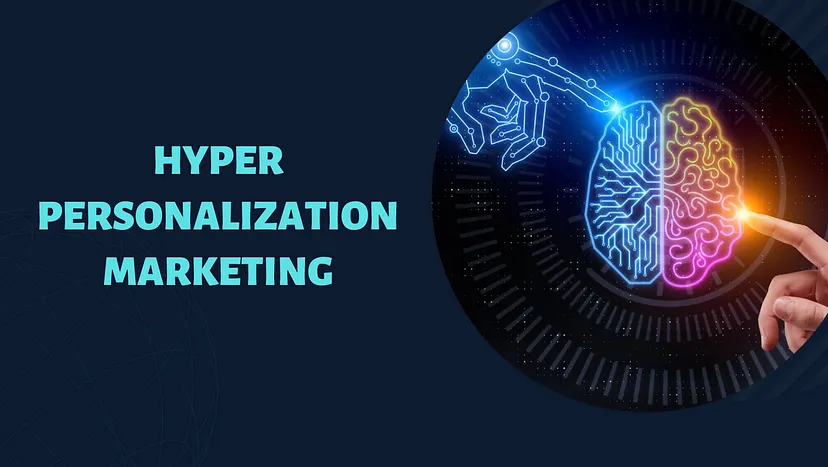Hyper-personalization: A New Era of Marketing

As quoted by Mehan Keany Anderson, �Don't push people to where you want to be,� meet them where they are.� In a rapidly evolving environment, customer experience is the paramount concern of marketing. With the rise of individualism and the need to stand out, customers expect a personalized experience from bands and companies.� They want to be appreciated and treated as individuals and therefore, companies need to be conscious of their wants and desires to stimulate engagement. Hyper-personalization is all that and more. It is the concept of leveraging artificial intelligence and real-time behavioural data to bestow customers with relevant content, product and service information, and a tailor-made experience.
Hyper- personalization starts with basic steps like recommendation engines and goes on to predict the preferences of every customer, tailoring products and pricing to the particular individual. It is a customer-centric strategy that combines aspects of artificial intelligence such as predictive analysis, user experience (UX), and content creation with complex and advanced data like browsing activity, in-app behaviour, consumer affinity to brands, actual purchasing behaviour, and active hours, etc. This builds a path for a simplified shopping experience as consumers can easily find what they desire and eliminates the trouble of being overwhelmed by a plethora of options, unable to find what they need.
In today�s world, customers prefer interacting with brands and companies that they feel an emotional connection with.� As hyper-personalization enhances customer experience, it also improves the marketing performance of the businesses. Hyper-personalization has many other benefits, like establishing goodwill, increased loyalty among customers, and overall customer satisfaction. It reduces marketing costs in the future substantially, as the target audience is delivered what they need without wasting time and effort. It also gives businesses an edge over the competition, as most business units have not yet tapped into the implementation of hyper-personalization. In a survey, only 9% of marketing professionals said that they completed the development of such strategies.
In conclusion, emotional engagement, brand loyalty, and a new marketing approach are what businesses need to survive in an industry where online competition is high and customer expectations keep changing. The importance of hyper-personalization in digital marketing cannot be overstated. Companies need data-driven marketing strategies powered by AI, machine learning, and automation to obtain meaningful insights into the needs, wants, and preferences of their consumers.
Comments

Leave Comment


 AVNI THUKRAL
AVNI THUKRAL


No Comments ...